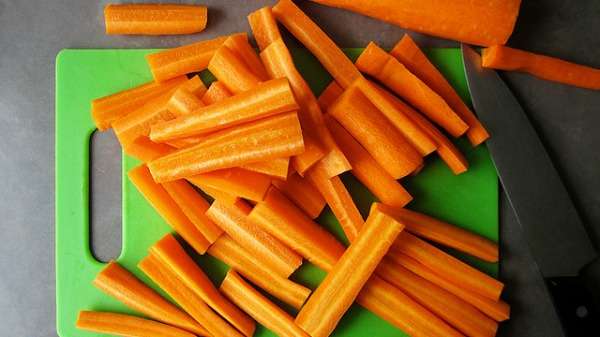The nutrition behind good sperm

Males with low sperm quality probably won't get much help from dining down on fish oil supplements and a bag of carrots, recent aquatic-based research suggests.
A University of Western Australia study on the guppy (Poecilia reticulate) found that while omega-3 long-chain polyunsaturated fatty acids (PUFA) have a significant effect on sperm quality, their combination with carotenoids such as beta-carotene (found in carrots), lypocene (tomatoes) and lutein (egg yolk) has little effect.
While researchers had hoped to find the pair helped rev up sperm, the combined nutrients showed only a weak but significant link to an improvement in sperm length.
However, PhD student Moshiur Rahman says this finding does show an interaction effect, proving dietary nutrition influences sperm quality and male fertility.
He says the key to understanding how and applying the knowledge to other species, including humans, lies in unravelling the complex way in which nutrients interact.
"Carotenoids have attracted much interest from evolutionary biology researchers because of their antioxidant and immune-stimulant activities, which we believe may contribute towards the expression of sexually selected traits," Mr Rahman says.
"As antioxidants, they protect cells from damage, including omega-3 long-chain polyunsaturated fatty acids, which are important in numerous physiological processes, including sperm production.
"They also stimulate the immune system of cells.
Four groups of fish sperm considered
"Given the expected interacting effects of dietary carotenoids and n3 LC-PUFA, it is surprising that until now the effects of both nutrients on ejaculate traits have been studied independent of each other."
In the study, researchers divided 120 male P. reticulata guppies (aged three months) into four dietary groups differing in levels of carotenoids and n3LC-PUFA.
Researchers reared the popular live-bearing fresh-water aquarium fish for four months before extracting and analysing sperm for velocity, motility, length and viability.
Those who had ingested a diet high in n3LC-PUFA had superior effects.
The study led Mr Rahman to plan more research into interaction focusing on nutrients such as essential amino acids, vitamins and hormones, which he hopes to investigate with other species, eventually even humans.
He maintains that while carotenoids didn't boost results in sperm, they are still essential for animal and human health.
"Dietary carotenoids decrease the risk of disease, particularly certain cancers and eye disease, and I would encourage people to eat a diet high in fruits and vegetables," he says.
Just don't expect their intake to translate into improvements in the bedroom.
More information: "Testing the interactive effects of carotenoids and polyunsaturated fatty acids on ejaculate traits in the guppy Poecilia reticulata (Pisces: Poeciliidae)." J Fish Biol. 2015 May;86(5):1638-43. DOI: 10.1111/jfb.12661
Provided by Science Network WA





















